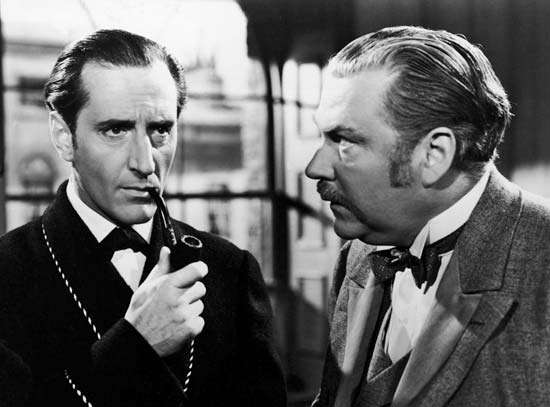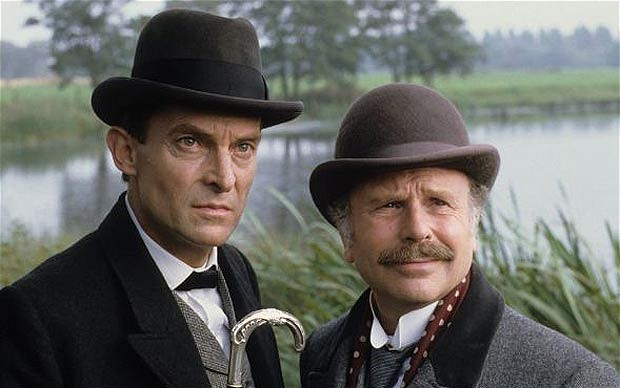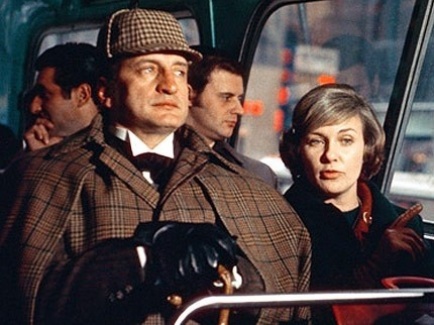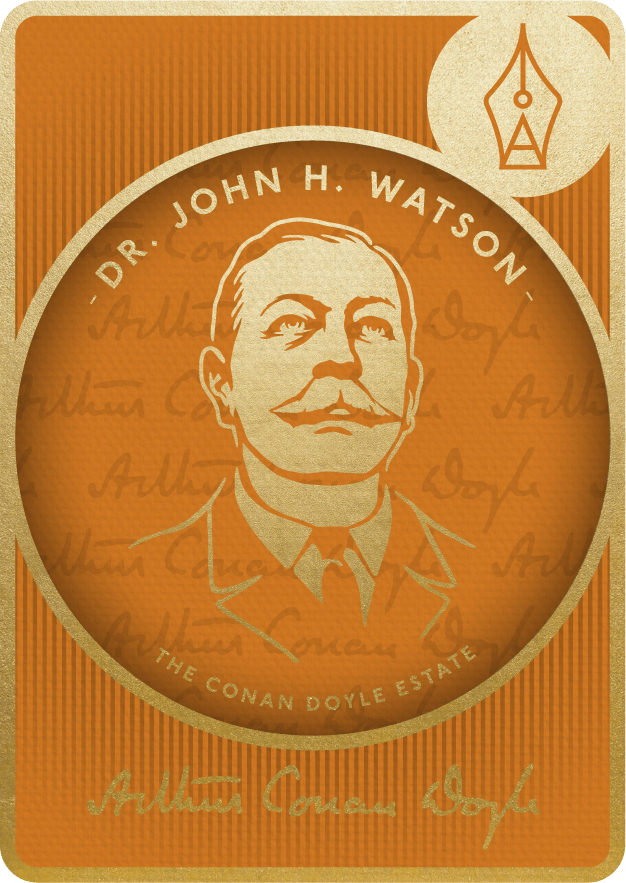 Nigel Bruce as Doctor Watson
Nigel Bruce as Doctor Watson
 Edward Hardwicke as Doctor Watson
Edward Hardwicke as Doctor Watson
 Joanne Woodward as Doctor Watson
Joanne Woodward as Doctor Watson
Watson is the lynchpin. He provides the essential core of humanity that is often hard to find in Holmes. It would be difficult to listen to a story told by Holmes. Without doubt, it would be pedantic and perhaps even condescending. Watson is the one we’d like to hear. He reacts with the wonder that makes us love the near-miraculous deductions of Sherlock Holmes.
As I am a physician, I’ve naturally been drawn to the Watson character in the Sherlockian Canon. The stories were written by a physician (Conan Doyle), and narrated by a physician (John Watson), and the Holmes character was modeled after a physician (Joseph Bell). There are numerous medical references throughout the stories as well, and, inevitably, we see the great adventures as a doctor would view them.
But Watson plays a far more important role in the Canon than mere medical observer. In fact, he’s the basis of it all. Had he not met Holmes and insisted on telling the tales of The Great Detective, we’d be without these remarkable stories. However, Watson is far more than a good narrator. Holmes is the perfect reasoner and observer. He is detached and, with one exception, friendless. The few stories he does eventually tell are rather dry and lifeless. By himself, he’d never have burnt himself into history.
Watson is the lynchpin. He provides the essential core of humanity that is often hard to find in Holmes. It would be difficult to listen to a story told by Holmes. Without doubt, it would be pedantic and perhaps even condescending. Watson is the one we’d like to hear. He reacts with the wonder that makes us love the near-miraculous deductions of Sherlock Holmes. He provides the grounded loyalty that we would offer to a friend like Holmes. And he shows that each of us, ordinary as we are, might yet aspire to accompany Holmes on the most extraordinary of adventures and journeys.
While Holmes often disparages Watson, a few things should be kept in mind. Watson has an M.D. degree (as did Arthur Conan Doyle). In England, this is a more advanced degree than the basic M.D. received by American medical students. He received his degree from a fine institution, the University of London, and did additional training at St. Bartholomew’s Hospital, a great hospital. He clearly is well educated and capable. He would not have those credentials if he were merely “mediocre,” as Holmes once called him. Atop all that, he serves in the military, is wounded, returns to practice, marries, and still manages to narrate these wondrous tales. It’s a full life and one that could not have been led by anyone other than a man as exceptional as Holmes himself.
Given that we’re dealing with the necessary “other half” of the Holmes Canon, how has he been treated in the world of popular culture that followed in the wake of the written stories? In the early stage plays, including William Gillette’s version, and in much of silent cinema, Watson is not a key participant. He’s brought in every now and then to express amazement, but is frequently a minor figure. Only when Basil Rathbone came on screen did Watson become important. Regrettably, the screenwriters of the Rathbone opus chose to represent Watson, played by Nigel Bruce, as a silly sort, sometimes called Boobus Britannicus. Bruce was a terrific actor and clearly did what was expected of him. He is not permitted to convey the intelligence of the real Watson. However, he manages to become a beloved figure in spite of the scripts. Bruce and Rathbone were professional and personal friends and, no matter how silly his lines, Bruce succeeds in conveying a sense of warmth and devotion to Holmes that remains indelible in our memory.
Following that series, various actors played Watson, sometimes seriously, sometimes in jest. One notable late-1970s standout is James Mason in Murder by Decree, providing a nuanced performance that demonstrates a serious man with a sense of humor. But we owe the Granada series of the 1980s a great debt for finally setting things right with Watson. Alongside the Holmes of Jeremy Brett, first David Burke and then Edward Hardwicke approximate the man who gave us the Canon. They are serious, intelligent, patient, sometimes awed, and altogether the sort of men who would be chosen by Holmes to accompany him through life. Some thirty years later, Benedict Cumberbatch’s modern-day Holmes is matched with Martin Freeman. He plays Watson with some handicaps from his war experiences but remains the counterweight to the eccentric Holmes with his occasional retreats to the mind palace. No one better conveys the exasperation that Watson must have often felt in dealing with the most exasperating of roommates than does Freeman.
Finally, the most recent Watsons have challenged our conventional notions. Some films had Watson-like characters played by women. Most did not make a strong impression, though an exception was Joanne Woodward in They Might Be Giants, a psychiatrist mistaken for his Watson by George C. Scott, delusionally thinking himself Holmes. Lucy Liu, in the long-running series Elementary, shows that a fine actress can demonstrate the intellect and compassion of the Canonical Watson. And in the Japanese-produced Miss Sherlock, women play both Holmes and Watson. The characters are written with human frailties and intellectual strengths. Regardless of gender, it shows that a well-crafted script that remains faithful to the Watson of the sixty stories and placed in the hands of skilled performers can get to the core of the real Watson.
None of us can be as smart as Sherlock Holmes. Many of us could aspire to be like Watson. He takes hold of Holmes, in many ways an unbelievable character, and gives him credibility and immortality. Holmes once admitted to being lost without Watson, his Boswell. The many devotees of all things Sherlock realized that about Watson just a few pages into the Canon.
--
Written by Robert S. Katz, a graduate from Haverford College (alma mater of Baker Street Irregulars founder Christopher Morley) and received his M.D. degree from the Albert Einstein College of Medicine in New York City. He specialized in pathology and retired after thirty-five years in practice. He is invested as “Dr. Ainstree” in the Baker Street Irregulars, and has edited several books on Sherlockian topics, including Nerve and Knowledge (BSI Press), dealing with doctors and medicine in the Sherlock Holmes Canon.

